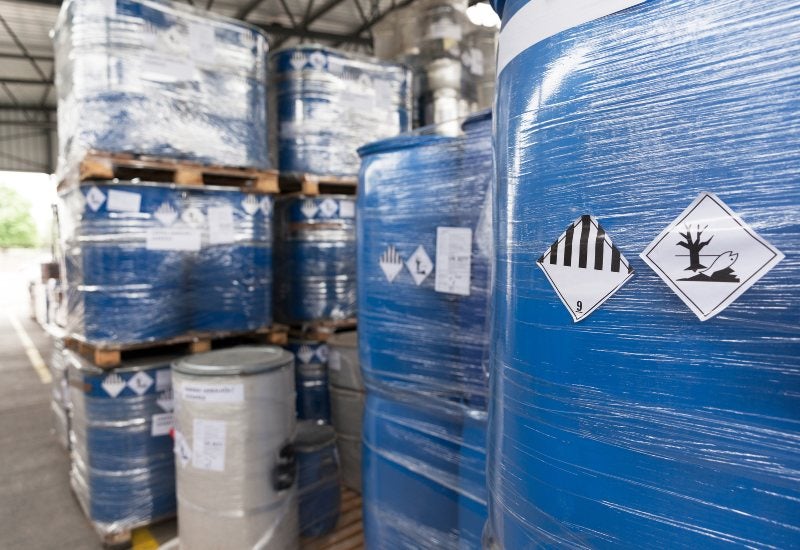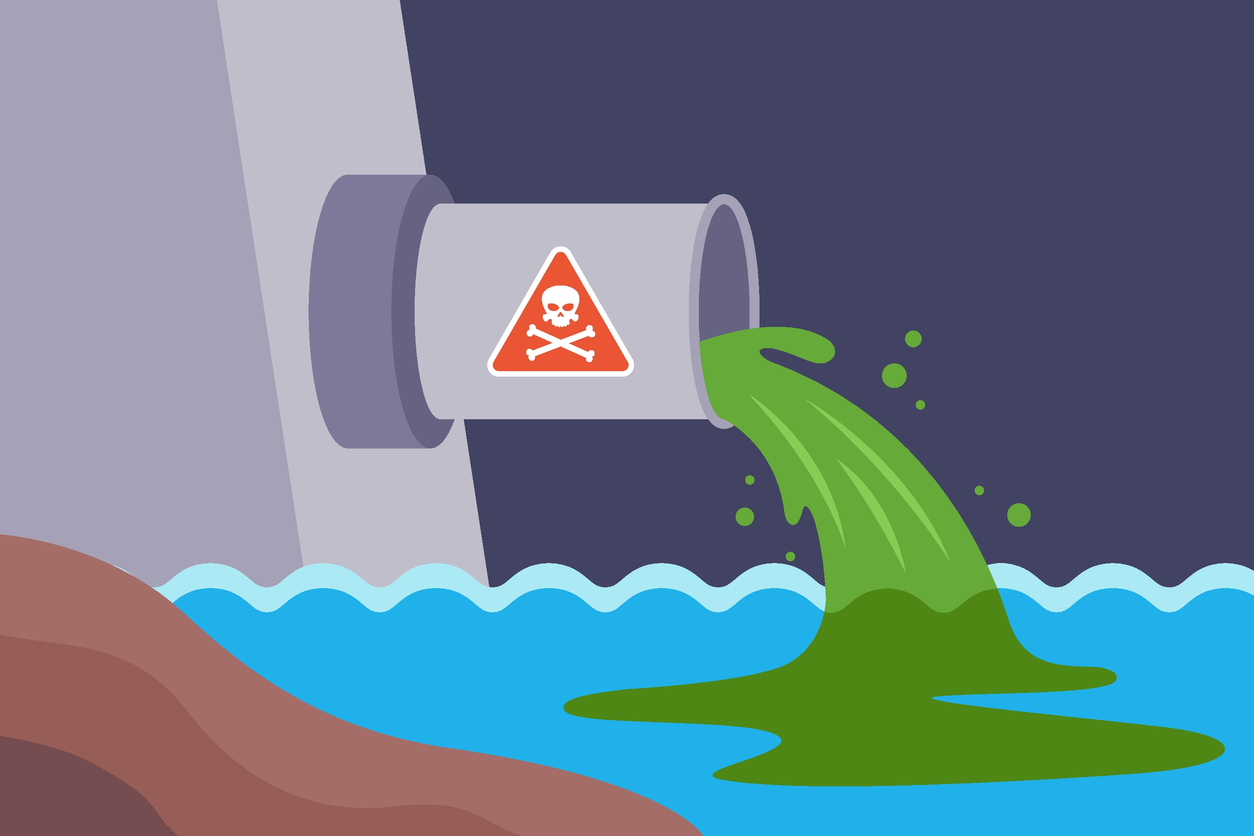Industrial Wastewater Treatment: Advanced Approaches for Effective Monitoring
Industrial Wastewater Treatment: Advanced Approaches for Effective Monitoring
Blog Article
Understanding the Comprehensive Refine of Liquid Garbage Disposal: Best Practices and Environmental Influence Factors To Consider
The administration of liquid waste disposal is a multifaceted problem that requires a complete understanding of different best techniques and their associated ecological effects. From the kinds of liquid waste produced to the techniques employed for collection, therapy, and final disposal, each step plays a crucial function in safeguarding communities and public health and wellness.
Types of Liquid Waste
Comprehending the numerous kinds of liquid waste is necessary for efficient monitoring and disposal practices. Liquid waste can be broadly classified into several types, each needing distinct handling and therapy methods.
Industrial fluid waste often includes hazardous materials, consisting of hefty steels, solvents, and chemicals, produced during making processes. These wastes necessitate strict governing compliance to protect human wellness and the setting. Domestic liquid waste largely refers to wastewater generated from households, including sewage and greywater, which, although much less toxic, can still pose significant dangers if incorrectly managed.
Agricultural fluid waste, consisting of overflow from farms, typically has plant foods and pesticides that can cause ecological deterioration if not dealt with properly. Medical fluid waste, generated from healthcare facilities, includes infected fluids such as bodily fluids and chemicals, needing specialized disposal approaches to avoid infection and ecological contamination.
Last but not least, oil and grease waste, generally created by restaurants and automotive markets, can cause severe clogs in sewer systems if not taken care of effectively. Recognizing these classifications promotes targeted methods for therapy, conformity with guidelines, and efficient disposal methods, ultimately promoting environmental sustainability and public health and wellness security.

Collection Approaches
Effective collection methods are important for the proper monitoring of fluid waste, making sure that it is gathered safely and successfully before therapy or disposal. Numerous strategies are used depending upon the kind of liquid waste generated, the quantity, and the details qualities of the waste.
One common approach is the use of committed collection storage tanks or sumps, which are designed to record liquid waste at the resource. These systems often integrate pumps that facilitate the transfer of waste to larger storage containers or therapy centers. In addition, mobile collection devices furnished with vacuum innovation are used in situations where waste is generated periodically or in hard-to-reach places.
For industrial setups, closed-loop systems can properly reduce leaks and spills, permitting the healing and reuse of liquid waste. It is likewise necessary to educate employees on correct collection procedures to mitigate dangers associated with dangerous materials.
Moreover, applying routine maintenance timetables for collection tools ensures optimal performance and safety. The assimilation of sophisticated tracking systems can improve collection efficiency by providing real-time information on waste levels and prospective dangers. On the whole, reliable collection approaches are fundamental to lasting fluid waste monitoring methods.
Therapy Processes
Treatment processes play a vital duty in the monitoring of fluid waste, transforming possibly harmful materials right into safe effluents or multiple-use sources - liquid waste disposal. These procedures can be broadly classified right into physical, chemical, and organic approaches, each customized to deal with certain impurities existing in the waste stream
Physical therapy techniques, such as sedimentation and filtration, work by removing suspended solids and particulate issue. These methods are often the very first step in the treatment chain, efficiently decreasing the tons on succeeding processes. Chemical therapies include the usage of reagents to counteract dangerous substances, precipitate heavy steels, or oxidize natural toxins, thus boosting the safety and security of the effluent.
Biological therapy processes, including activated sludge systems and anaerobic food digestion, maximize the natural abilities of microorganisms to weaken organic matter. These approaches are specifically effective for find out wastewater including eco-friendly pollutants. Advanced therapy modern technologies, such as membrane filtration and advanced oxidation processes, are significantly used to achieve higher levels of filtration.
Incorporating a mix of these treatment methods not only makes certain conformity with regulatory standards yet also promotes ecological sustainability by recovering valuable resources from fluid waste.
Disposal Options
How can organizations ensure the accountable and risk-free disposal of fluid waste? Effective disposal alternatives are crucial for protecting public health and the environment. The key approaches consist of land therapy, incineration, and disposal complied with by discharge right into municipal wastewater systems.
Land disposal includes the careful control of fluid waste in designated landfills, guaranteeing that it does not leach into surrounding soil or water. Incineration, on the other hand, topics liquid waste to high temperature levels, converting it into ash and gases, which call for appropriate purification to decrease emissions. This technique is ideal for hazardous wastes that can not be dealt with via typical methods.
In situations where liquid waste can be treated, organizations may select chemical or biological treatment processes to neutralize hazardous parts before discharging the dealt with effluent right into local systems. This course commonly straightens with regulative demands, making sure that the effluent meets security criteria.
Eventually, companies should carry out complete assessments of each disposal choice to establish its stability, considering variables such as waste composition, governing conformity, and prospective threats to wellness and the environment. By choosing ideal disposal techniques, organizations can add to a liable waste monitoring method.
Ecological Effect
The environmental impact of liquid waste disposal is a critical consideration for companies seeking to lessen their ecological footprint. Inappropriate disposal approaches can cause considerable contamination of water sources, soil destruction, and adverse results on regional ecological communities. For circumstances, unsafe liquids can seep right into groundwater, posturing risks to alcohol consumption water products and aquatic life. Additionally, the discharge of untreated or inadequately treated waste into surface area waters can result in eutrophication, leading to oxygen depletion and the subsequent fatality of fish and various other microorganisms.

To reduce these influences, organizations should take on best techniques such as implementing strenuous waste therapy processes, promoting recycling and reuse, and adhering to regulatory requirements. By taking an aggressive method to fluid waste administration, entities can considerably minimize their ecological footprint while sustaining lasting advancement objectives. Ultimately, a detailed understanding of the environmental influences connected with liquid garbage disposal is essential for news educated decision-making and responsible stewardship of natural deposits.
Final Thought
Effective administration of liquid waste is essential for guarding environmental honesty and public health and wellness. By embracing best techniques in disposal, therapy, and collection, alongside adherence to regulative criteria, the potential for dangerous contamination of ecosystems can be substantially lowered. Continuous innovations in innovation and procedures add to lasting waste management efforts. Inevitably, a thorough understanding of liquid garbage disposal not only alleviates ecological influences but also fosters a dedication to liable source administration and ecological stewardship.
The monitoring of fluid waste disposal is a multifaceted problem that requires an extensive understanding of numerous finest practices and their associated ecological effects. From the kinds of fluid waste created to read here the approaches employed for collection, therapy, and final disposal, each step plays an important role in securing ecosystems and public wellness.The ecological effect of fluid waste disposal is a critical factor to consider for companies looking for to lessen their ecological impact. Ultimately, a comprehensive understanding of the ecological effects associated with liquid waste disposal is crucial for informed decision-making and accountable stewardship of all-natural sources.
Ultimately, a comprehensive understanding of fluid waste disposal not only alleviates ecological influences yet additionally cultivates a dedication to liable source administration and ecological stewardship.
Report this page